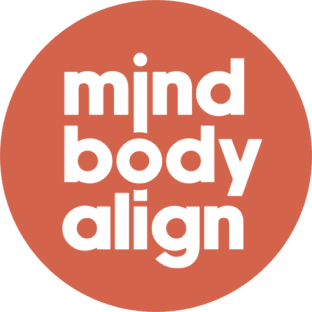This last year tested me. It tested my patience, values, self-control, and boundaries. It reignited the big transcendental question, “What’s the point?” It also caused me to contemplate and take action on things I never guessed I would need to act upon.
In some ways, I’m curious: Are all major life changes a test? Are they testing our commitments and values? Do these challenges force us to choose, to cut off and uproot some things and to fertilize and strengthen others?
As I’m contemplating the writing of this blog post, I’m walking my driveway. I have my earbuds in and, to any onlooker, I’m talking to myself. I guess I am talking to myself. I’m telling myself about what it is to be calm in the face of change because, well – I’m curious about the topic.
Calm is not my traditional way of being. I’m a “hot head” when triggered.
Suddenly, I remember my dog Sophie. She was a beautiful black and tan German Shepherd who passed away a few years ago. When she would spot an animal such as a rabbit or a squirrel, she would go still, her whole body lowering to the ground, and she would move deliberately and silently until the moment that she shot forward like the bullet out of a gun, charging fatally toward her target.
When I am triggered, I react in one of three ways. I scream, cry, or get very deliberate, like Sophie.
I read a book a number of years ago called Willpower: Rediscovering the Greatest Human Strength by Roy Baumeister. In his introduction Roy says, “But they (Researchers) have discovered, or at least rediscovered, how to improve self-control.” Baumeister observed in the laboratory “how it (willpower) gives people the strength to persevere, how they lose self-control as their willpower is depleted, how this mental energy is fueled by the glucose in the body’s bloodstream.” He also discovered “that willpower, like a muscle, becomes fatigued from overuse but can also be strengthened over the long term through exercise.” You see, I always thought that an individual either had willpower or didn’t have willpower and I categorized myself in the “didn’t” category. I ate too much, couldn’t maintain an exercise routine, and blah-blah-blah. I didn’t have willpower.
I now know: With practice, you have the ability to strengthen and nourish willpower, which gives you the ability to draw on reserves of self-control when you need it.
There are 5 ways I cultivate and strengthen the ability to remain calm.
- Eat nourishing food. This isn’t a diet or gimmick. Eat the foods that support your body and brain. Balanced is better. Learn how your body works and what it needs by experimenting with foods and keeping a food diary. Notice when you feel energetic, sluggish, brain fog, or mentally sharp. Do you retain water or have aching joints? Eliminate some foods and experiment with others. Your body will tell you what’s right for you.
- Move your body. Try a variety of different types of activities. There are so many interesting games and ways to stay fit. My current interest is pickleball! Schedule a few activities that increase your heart rate and a few that calm your mind and stretch your body. Try hiking, swimming laps, or jazzercise. And, have fun!
- Get quality sleep. If I don’t get enough sleep, I don’t have the ability to resist temptation of all kinds, including emotional triggers. Sleep is essential for healing the body and mind. Develop a healthy routine that begins an hour before you plan to go to sleep. Turn off all your devices (including your television), wash and moisturize your face, brush your teeth, read poetry or a contemplative book, and meditate. Show your body and mind that you are slowing down and preparing for rest.
- Meditate. Many philosophers, both ancient and modern, recommend we control our thoughts. Meditation is an ebb and flow of noticing thoughts and gently returning to an anchor such as the breath; this builds the muscle of controlling thoughts. Meditation is the best way I have found to strengthen self-control and support my ability to stay calm and make the next right decision.
- Practice self-control. This is harder than it looks! My tendency is to say, “Ok, I’ll practice self-control.” But I am human, and when a moment arises that tests my self-control, sometimes I resist temptation I cave. I am more successful when I am specific and measurable about what my goal is.
Be specific and measurable about building this important muscle of self-control. Set the intention to resist a specific temptation. For example, schedule one hour each day when you don’t look at your phone, a 12-hour day when you resist making a snarky comment, or five days when you walk outside for 30 minutes (rain, shine, or snow). Whatever you choose, I invite you to notice and acknowledge yourself every time you engage the will to resist.
Navigating and managing a changing environment, especially one that is as unexpected, multifaceted, and universal like our current world’s changes brought about by the Coronavirus, requires a large reserve of physical and mental energy. These moments test your commitments and values; they force you to make hard choices.
I hope this information will reassure you. You do have the ability to cultivate the muscles you need to be calm in the face of change. I invite you to make time to care for yourself. Feel my hand holding yours, and send yourself, me, and the world loving kindness. We can all use a positive energy boost. Find beautiful, supportive audio meditations on mindbodyalign.com.
Sending you a hug!










